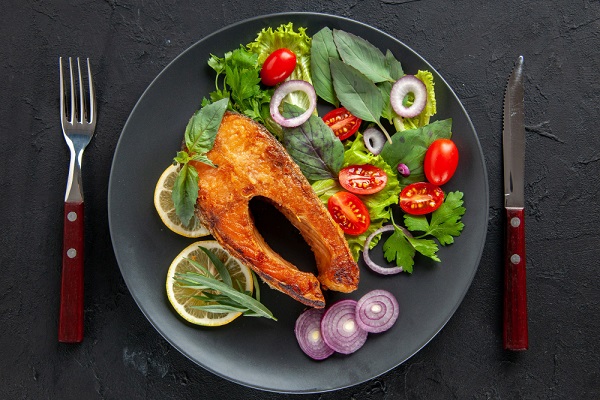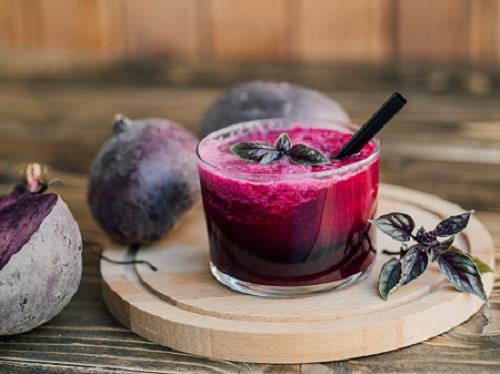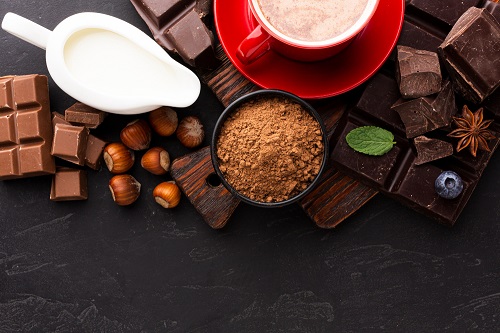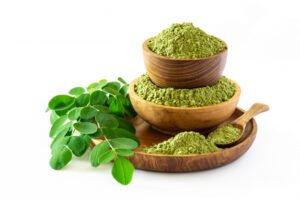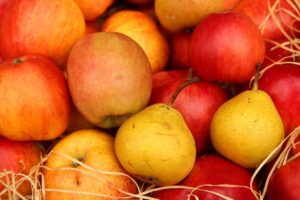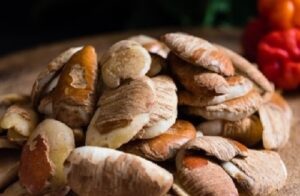High blood pressure, or hypertension, is a common health issue affecting 30% of adults in Nigeria and is a major risk factor for cardiovascular diseases, including heart attacks and stroke. While medications can help lower hypertension, research has shown that adding certain foods to your diet can play a huge role in lowering your blood pressure.
In this article, we’ll discover the foods to avoid and learn about heart-healthy Nigerian foods that can lower blood pressure. These foods are rich in healthy minerals, vitamins, and antioxidants.
Foods good for high blood pressure
1. Hibiscus Tea (Zobo)
Hibiscus, also known as roselle or zobo is a plant that is rich in antioxidants such as beta-carotene, vitamin C, and anthocyanin. Antioxidants help destroy harmful molecules in the body that can cause cancer, heart disease, and diabetes.
Several studies have found that drinking hibiscus as a tea or drink can help lower blood pressure readings and reduce cholesterol.
One study found that one of the compounds in hibiscus causes nitric oxide release – a compound that widens your blood vessels, improves blood flow, and reduces blood pressure [1].
Another study found that hibiscus tea decreased systolic and diastolic blood pressure by an average of 7.58 mmHg and 3.53 mmHg, respectively [2].
While hibiscus tea may be a natural way to help lower blood pressure, taking it with medications that lower blood pressure might cause blood pressure to go too low. So monitor your blood pressure closely.
Also read: Roselle (Zobo): 10 Amazing Benefits and Facts You should know
2. Potassium-rich fruits
Potassium is a mineral that regulates the heartbeat and promotes the normal functioning of body cells. It helps lower blood pressure by controlling the amount of sodium in the body.
The recommended potassium intake for an average adult is 4,700 mg (4.7 g) per day. Studies have found that daily potassium intake lowers the risk of stroke and coronary heart disease [3].
Increasing dietary intake of potassium is necessary for adults with blood pressure above 120/80mmHg. However, potassium may be harmful in people with kidney disease or people on certain medications.
Below are fruits naturally rich in potassium. The potassium quantities are for 100g of fresh fruit servings [4].
- Avocado, 485 mg
- Guava, 417 mg
- Banana, 358 mg
- Papaya, 182 mg
- Orange, 181 mg
- Tangerine, 166 mg
- Grapefruit, 139 mg
- Mango, 168 mg
- Tomato, 237mg
3. Garlic
Garlic is a popular cooking spice that adds flavor and richness to meals. It contains allicin – the main active ingredient that may help lower blood pressure, reduce cholesterol levels, and fight infections.
One study found that garlic supplements, especially aged garlic extract, was effective in reducing blood pressure by improving arterial blood flow and reducing cholesterol levels [5].
You can add garlic to your diet or take them as a supplement. However, note that side effects can occur if you take large quantities or when you combine them with anticoagulant medications. So, to avoid blood thinning, speak with your healthcare provider before drastically increasing your garlic intake [6].
4. Oatmeal
High-fiber whole grains, such as oats and brown rice, are heart-friendly foods that aid weight loss and lower cholesterol levels [7].
Oats are rich in beta-glucan, a type of soluble fiber that has been shown to prevent and lower blood pressure when added to a healthy diet.
One study found that eating oats significantly reduced both the systolic and diastolic blood pressure readings in 18 hypertensive patients, while also reducing their cholesterol and low-density lipoproteins (LDL) levels [8].
5. Beans and legumes
Beans, such as black-eyed peas, soybeans, kidney beans, and black beans have been found to help lower blood pressure. They are rich in dietary fiber, potassium, magnesium, and plant-based protein.
Studies have found that beans and legume consumption may significantly prevent and lower blood pressure in hypertensives patients [9][10].
Also read: Black-eyed peas (Cowpeas): 10 proven reasons why you need it
6. Leafy green vegetables
Leafy greens are loaded with vitamins and minerals. They are rich in vitamins A, B, C, and K, folate, calcium, magnesium, potassium, iron, fiber, and antioxidant which all work together to help reduce blood pressure.
Examples of leafy greens to add to your Nigerian diet include:
- African spinach (green)
- Pumpkin leaves (ugu)
- Oha
- Bitter leaf
- Jute leaves (Ewedu)
- Water leaf
- Wild spinach (Wild spinach)
- Scent leaf
7. Fatty fish
Seafood such as mackerel (Titus), salmon, tuna, mussels, oysters, and crabs are excellent sources of omega-3 fatty acids, which have been shown to reduce the risk of heart attack and stroke.
Fish oil contains two omega-3s called docosahexaenoic acid (DHA) and eicosapentaenoic acid (EPA) which are largely responsible for its heart-healthy benefits. One study found that consuming 3 grams of omega-3 fatty acids, DHA and EPA, can reduce blood pressure and improve heart health [11].
8. Beetroot
Beets are rich in nitrates, which help relax blood vessels and may lower blood pressure.
One study of 24 people with high blood pressure found that consuming both 250 mL of raw beet juice and 250 grams of cooked beets reduced blood pressure, although drinking the raw beet juice was more effective [12].
Although they are not popular in Nigerian markets, you can find them in specialty food stores or online.
9. Sweet potato
Sweet potatoes are loaded with potassium, magnesium, dietary fiber, and vitamin A.
One medium-sized sweet potato will provide you with about 438 mg of potassium, which promotes a healthy heart by balancing the amount of sodium in your body.
They are a nutritious addition to your diet and can be enjoyed in various ways.
10. Nuts and Seeds
Nuts, such as walnuts, almonds, peanuts, chia seeds, and pumpkin seeds, are rich in potassium and magnesium – two minerals that have been shown to reduce blood pressure.
They’re also rich in dietary fiber, protein, and healthy fat that helps regulate cholesterol, improve heart health, and reduce cardiovascular diseases [13].
11. Greek yogurt
Low-fat dairy products like Greek yogurt are a great source of calcium – an important mineral that helps fight high blood pressure [14].
One cup of yogurt will give you about 30% of the recommended daily intake of calcium. Yogurt is also loaded with potassium, protein, vitamins, and minerals that are great for your overall health.
12. Cocoa powder (Dark chocolate)
Cocoa powder is the main ingredient in chocolate. It is rich in flavonoids, an antioxidant that dilates blood vessels and lowers blood pressure [15].
You can make a chocolate drink with the powder or add it to pap, custard, or smoothies. If you prefer a chocolate bar, look for a bar that contains 70% to 85% cocoa.
Foods to avoid with high blood pressure
Here are foods to avoid if you have high blood pressure:
Salt and sodium-rich foods
Salt also known as sodium chloride, contributes to high blood pressure. When you consume too much salt, your body retains water, which can increase blood pressure.
The American Heart Association recommends limiting sodium intake to a maximum of 2.3g per day and moving toward an ideal limit of no more than 1,500 mg per day for most adults [16]. Read food labels carefully and avoid high-sodium foods like canned beans, chips, pretzels, and cheese.
Red meat
Red meat, such as beef, pork, and lamb, is high in saturated fat and cholesterol, which can lead to hypertension and other forms of cardiovascular diseases.
One study found that substituting red meat with healthy foods such as legumes, nuts, whole grains, and eggs can reduce the risks of coronary heart disease [17].
If you choose to eat meat, limit your portion sizes and opt for lean meats like skinless chicken and goat meat.
Processed foods and packaged foods
Processed and packaged foods are loaded with sodium, trans or saturated fat, and added sugars, which contribute to high blood pressure.
One study found that people with high consumption of processed foods were more likely to have high blood pressure [18]. Examples of processed foods to avoid include packaged chips, snacks, soft drinks, artificial juices, cookies, and frozen/pre-prepared meals.
Alcohol
Regular alcohol consumption can contribute to a rise in blood pressure. A study found that even moderate consumption of 7 – 13 drinks per week can double the risk of hypertension [19].
If you must drink alcohol drink, do so in moderation, which means 1 drink per day for women and 2 drinks per day for men.
Sugary drinks
Drinks such as artificial juice, soda, energy drinks, and sports drinks are often high in sugar, which can contribute to high blood pressure and other diseases.
Choose water, fresh fruit juice, herbal tea, and sparkling water.
Supplements that can help lower blood pressure
It is important to speak to your healthcare provider before trying any of these supplements – as some of them may interact with your medications.
Here are some food supplements that can help prevent and treat hypertension.
- Garlic supplements – Find organic varieties online
- Beetroot supplements – Choose from a variety of beetroot gummies or capsules online
- Hibiscus tea (Zobo tea) – Find a variety to choose from online
- Cacao (cocoa) powder – Choose from a variety of organic cocoa online
- Fish oil – Find a variety of fish oil supplements to buy online
The bottom line
Incorporating foods such as hibiscus tea, garlic, whole grains, nuts, lean protein, and vegetables into your diet is a great way to prevent and treat high blood pressure.
While eating a healthy diet, it is also important to make certain lifestyle changes such as exercising, quitting smoking, and reducing stress levels.
Always remember to consult with your healthcare provider before making any significant changes to your diet and lifestyle.
Sources
- Alarcón-Alonso, Javier et al. Pharmacological characterization of the diuretic effect of Hibiscus sabdariffa Linn (Malvaceae) extract. Journal of ethnopharmacology (2012)
- Serban, Corina, et al. Effect of sour tea (Hibiscus sabdariffa L.) on arterial hypertension: a systematic review and meta-analysis of randomized controlled trials. Journal of hypertension (2015)
- Houston, Mark C. The importance of potassium in managing hypertension. Current hypertension reports (2011)
- USDA: U.S. Department of Agriculture
- Ried, Karin. Garlic lowers blood pressure in hypertensive subjects, improves arterial stiffness and gut microbiota: A review and meta-analysis. Experimental and therapeutic medicine (2020)
- Borrelli, Francesca, et al. Garlic (Allium sativum L.): adverse effects and drug interactions in humans Molecular nutrition & food research (2007)
- Tighe, Paula, et al. Effect of increased consumption of whole-grain foods on blood pressure and other cardiovascular risk markers in healthy middle-aged persons: a randomized controlled trial. The American journal of clinical nutrition (2010)
- Keenan, Joseph M, et al. Oat ingestion reduces systolic and diastolic blood pressure in patients with mild or borderline hypertension: a pilot trial. The Journal of family practice (2002)
- Hartley, Michael, et al. Association between Legume Consumption and Risk of Hypertension in the European Prospective Investigation into Cancer and Nutrition (EPIC)-Norfolk Cohort. Nutrients 16 Aug. 2022
- Jayalath, Viranda, et al. Effect of dietary pulses on blood pressure: a systematic review and meta-analysis of controlled feeding trials. American journal of hypertension (2014)
- George, Gupta. Blood Pressure–Lowering Effects of Omega‐3 Polyunsaturated Fatty Acids: Are These the Missing Link to Explain the Relationship Between Omega‐3 Polyunsaturated Fatty Acids and Cardiovascular Disease? Journal of the American Heart Association (2022)
- Asgary, S et al. Improvement of hypertension, endothelial function and systemic inflammation following short-term supplementation with red beet (Beta vulgaris L.) juice: a randomized crossover pilot study. Journal of human hypertension (2016)
- Glenn, Andrea J et al. Nuts and Cardiovascular Disease Outcomes: A Review of the Evidence and Future Directions. Nutrients 2023
- Nakamura, Haruki, et al. Dietary Calcium Intake and Hypertension: Importance of Serum Concentrations of 25-Hydroxyvitamin D. Nutrients 2019
- Ried, Karin et al. Effect of cocoa on blood pressure. The Cochrane database of systematic reviews 2017
- American Heart Association. How much sodium should I eat per day? 2021 blog.
- Al-Shaar et al. Red meat intake and risk of coronary heart disease among US men: prospective cohort study BMJ 2020
- Barbosa, Suamy Sales et al. A Systematic Review on Processed/Ultra-Processed Foods and Arterial Hypertension in Adults and Older People. Nutrients 2022
- Aladin A, Chevli P, Ahmad M, et al. Alcohol consumption and risk of hypertension. J Am Coll Cardiol. 2019
- Image by KamranAydinov on Freepik
Get new free and exclusive health tips delivered straight to your inbox!
